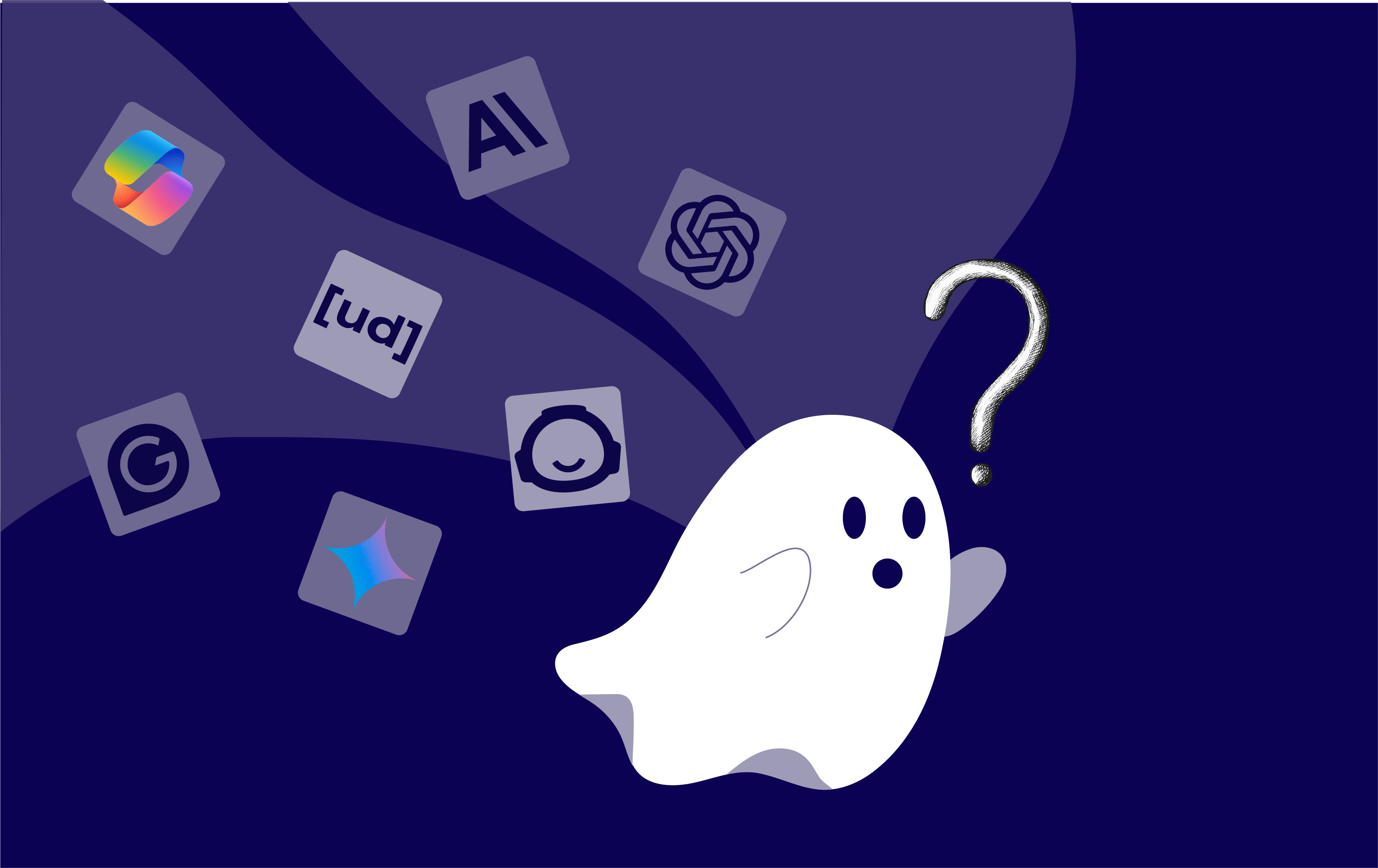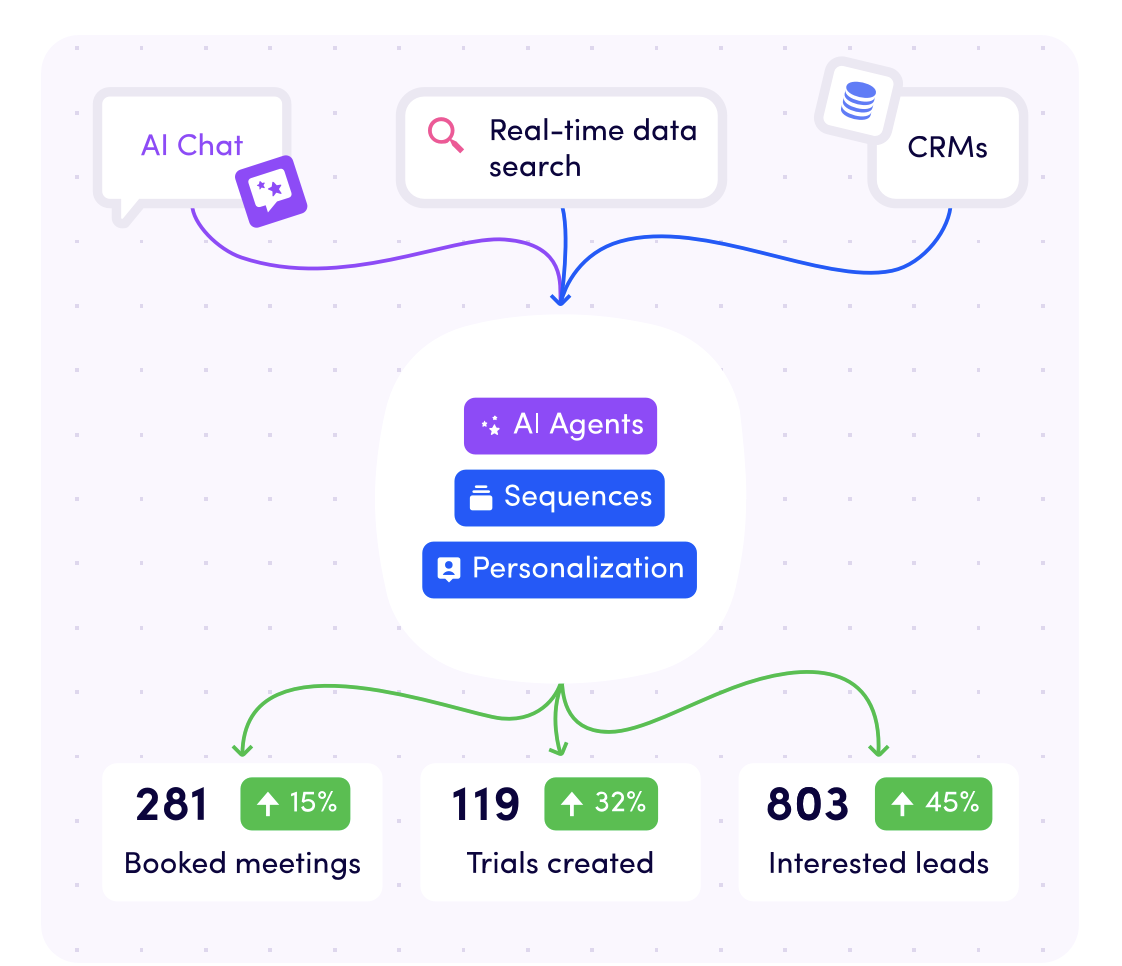AI In 2024: Latest Trends, Innovations, And Key Insights

Updated on 12/08/2024
We can truly say that we've entered a new era with the fast rise of Artificial intelligence in our daily lives. When ChatGPT launched in November 2022, we had no clue that the impact would be this big. Let's take a look at the current status of AI in 2024.
Since the launch of ChatGPT, the AI industry has seen a magnificent increase.
With new advancements, tools, technologies, and updates emerging every day, it's hard to keep up, we understand that.
In this article, we've tried to summarise the current state of the industry for you.
We'll be looking at
- AI Global market size and its forecast
- The start of the AI era
- AI benefits and considerations
- Generative AI's potential
- Artificial Intelligence in the workplace
Artificial Intelligence (AI) global market size and its forecast
In 2022, the global Artificial Intelligence market flexed its digital muscles, standing tall at a jaw-dropping USD 454.12 billion.
Now, brace yourselves, because by 2032, it's predicted to soar to an astronomical USD 2,575.16 billion.
That's not a growth spurt; it's an Artificial intelligence (AI) explosion with a sizzling compound annual growth rate (CAGR) of 19% from 2023 to 2032.
Tech giants like Google, Microsoft, IBM, Amazon, and Apple are the superheroes here, pumping heavy investments into Research & Development.
Their mission? To catapult these technological advancements into a future where Artificial intelligence seamlessly intertwines with our daily lives.
Currently, 50% of mobile phone users in the United States use voice search daily with artificial intelligence systems trained for speech recognition!
The automotive industry has been researching the impact of robots, powered by AI, on their industry as well. The self-driving car industry is expected to grow to 13.7 billion by 2023.
1/10 vehicles are expected to be self-driving by 2023.
Although 77% are worried that artificial intelligence will replace a lot of jobs in the (near) future, the World Economic Forum expects that Artificial Intelligence will create a total of 97 million new jobs.
Hold onto your hats, because government initiatives are adding more fuel to the Artificial Intelligence fire.
Committees on machine learning and Artificial Intelligence? ✅
Increased funding for digital initiatives? ✅
To date, limited memory systems are by far the most used AI systems.
Most of the AI applications you're using today, such as those using deep learning, are trained with this technique.
These systems use large volumes of training data that they store in their memory to form a reference model for solving future problems
What caused this enormous trend in artificial intelligence? Let's take a look at one of the fastest-growing companies, chatGPT.

(Image source: PrecedenceResearch)
ChatGPT, the start of an Artificial intelligence (AI) era
ChatGPT, a natural language processing system, emerges as the ultimate game-changer,
For those who haven't heard about it yet, welcome to your new life with ChatGPT!
ChatGPT is a chatbot developed by OpenAI and launched on November 30, 2022. Based on a large language model, it enables users to refine and steer a conversation towards a desired length, format, style, level of detail, and language.
👉 In this article, we'll explain to you everything you need to know about ChatGPT!
According to Forbes, a whopping 97% of business owners are betting their chips on the application of ChatGPT.
They use ChatGPT mainly for content generation.
ChatGPT is trained to understand human language and generate responses that mimic human conversation.
It can generate coherent and contextually relevant content, making it a valuable tool for businesses in various industries.
But ChatGPT is just the tip of the iceberg when it comes to the current status of Artificial Intelligence.
AI is permeating almost every aspect of our lives, from virtual assistants like Siri and Alexa to personalised recommendations on streaming platforms.
In the manufacturing sector, the application of AI algorithms is improving efficiency and productivity through advanced robotics and automation.
Smart factories equipped with AI systems can optimise production processes, and reduce errors.
Human intelligence is being augmented by AI in fields like healthcare, finance, and manufacturing.
AI-powered medical diagnosis systems are helping doctors make more accurate diagnoses, while AI algorithms are revolutionising the finance industry by analysing vast amounts of data to detect patterns and make predictions.
In just 5 days after liftoff in November 2022, ChatGPT hit the 1 million users mark, leaving Instagram in the dust and making Netflix look like a tortoise in a race.
That's right, 5 days.
Fast forward to January 2023, and boom! 100 million monthly active users.
Let that sink in.
TikTok took 9 months; Instagram took 2.5 years.
Now, I know you're not all about numbers but bear with me. The website notched up 1.6 billion visits in December 2023. That's more eyeballs than your favourite blockbuster movie gets in a month.
And if that's not all, Sam Altman, the brain behind OpenAI informed the world that ChatGPT reached a total of 100 million active users per week.
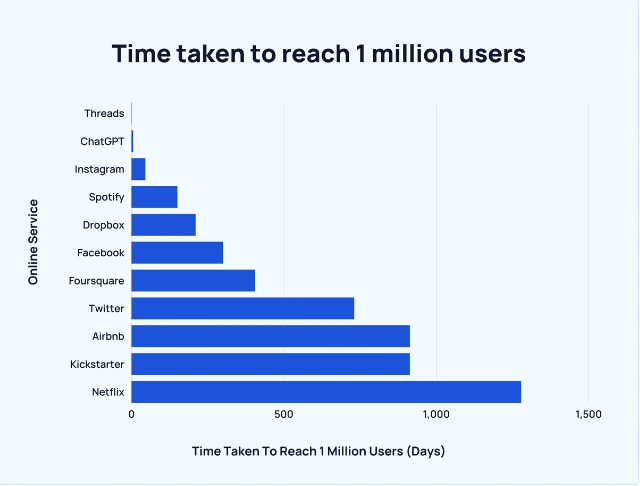
So, why ChatGPT?
Well, ChatGPT and other AI-based systems (chatbots) are extremely powerful and can help you with a wide range of tasks. Some examples are
- ChatGPT can help you in the content creation process
- ChatGPT can be used as a teacher to learn new concepts
- ChatGPT can be used to generate ideas for your digital marketing strategy
- ChatGPT can be used to analyse high-quality data for informed decisions
- ChatCPT can be used to write code and solve math problems
And so much more!
Check out our blog for more articles about ChatGPT.
ChatGPT statistics
According to SimilarWeb (30 Jan 2024)
- ChatGPT has over 1.6B monthly total visits
- 31.95% Bounce rate
- 4.32 average pages per visit
- Visitors spend an average of 7:33 minutes on the website
The United States covers 14% of the total monthly visitors, followed by India (7%), and the Philippines (3%).
Of these monthly visitors, 44.12% are female and 55.88% are male.
The application is used mostly in the age group between 18 and 34.
(Image source: Similarweb)
Artificial Intelligence benefits and considerations
AI has evolved into a game-changing force for businesses of all sizes and across industries.
It's no surprise that organisations are eager to leverage AI's capabilities to streamline operations, save time, and reduce expenses.
Here's how Artificial intelligence tools can benefit your business and team:
- Improved data-driven decisions
- Enhanced efficiency and increased productivity
- Improved speed of business
- New capabilities and business model expansion
- Personalised experiences
- Improved customer service and customer relationship management
- Better monitoring and evaluation
- Higher content quality outcomes with reduced human error
- Improved talent management
- Rapid innovation
- Industry-specific improvement and competitive advantage
Despite the rising demand for Artificial Intelligence, business leaders, entrepreneurs, and managers have concerns that may limit implementation.
Common concerns include issues related to data quality, transparency, ethical and legal risks, costs and Artificial Intelligence's impact on website traffic.
(Data source: Forbes)
Before integrating artificial intelligence and deep learning systems into your daily life, it's important to know its advantages and disadvantages.
Although there are caveats to using AI, by identifying the challenges, you can put systems in place to mitigate them.
Incorporating AI presents an opportunity to enhance efficiency, eliminate repetitive tasks, and shift the focus towards what truly matters, fostering a more strategic approach to business.
👉 In this article, we help you with implementing AI into your organisation and daily life.
Generative AI's Potential
While GenAI is in its nascent stages, it's advancing rapidly. Anticipated business transformations are substantial, and many foresee significant shifts in their workforce dynamics.
Boosting Labour Productivity
Assessing the impact of GenAI on 850 distinct job categories, McKinsey data reveals the technology's potential to significantly increase labour productivity by handling over 2,100 specific work activities.
The total annual economic benefits of GenAI, including use cases and increased productivity in knowledge worker activities, range from $6.1 trillion to $7.9 trillion annually. In addition to time-saving!
Profound Performance Impact
GenAI unlocks new frontiers for creativity and innovation, expanding AI's potential across a multitude of business functions.
The graph below, extracted from a recent McKinsey report, underscores the immense opportunity for leaders and teams to better explore GenAI's potential in enhancing overall business performance across various functions and occupations.

(Image source: McKinsey)
Artificial Intelligence in the Workplace
Now, you might have heard the whispers that AI is out to steal our jobs, but hold your horses!
You see, the rise of AI isn't a jobs apocalypse; it's a transformation.
Sure, some mundane tasks might be handed over to our silicon-based friends, but in return, they're creating a whole bunch of new opportunities.
Let's break it down. Thanks to AI, we're talking about an intelligent manufacturing utopia. It's like peanut butter and jelly – humans and machines working hand in circuit to create a symphony of efficiency.
And guess what? This tag team doesn't just benefit the suits at the top; it's a win-win for everyone, especially the hardworking folks at the grassroots.
In this AI-powered era jobs aren't disappearing, they're evolving. It's like a career glow-up!
Old roles might bid farewell, but in their place, we've got data analysts, AI programmers, and machine learning maestros strutting into the spotlight.
So, you might be wondering, "What's the catch?" Well, there isn't one – as long as you're ready to ride the wave of change.
Automation and AI are turning the workforce into a thrilling rollercoaster, and to stay in the game, you need to be agile and, dare I say, a bit tech-savvy.
Staying relevant in this AI-powered world is all about staying informed. Follow the AI gossip, attend the tech parties (a.k.a. conferences), and rub shoulders with the experts.
Knowledge is power, my friend, and in the age of AI, it's the key to unlocking a world of opportunities.

(Image source: Stage4Solutions)
In conclusion, the AI revolution isn't a threat; it's an invitation to upskill, adapt, and thrive.
So, gear up, because the future is now, and it's looking pretty darn exciting!
The impact of Generative AI on productivity
The Boston Consulting Group conducted a first-of-its-kind experiment on the impact on productivity using ChatGPT.
Around 90% of the participants improved their productivity using ChatGPT for ideation and content creation tasks.
However, when ChatGPT was used for business problem-solving, the participants performed 23% worse than those doing the task without GPT-4.
Important note: Creative ideation sits firmly within GPT-4’s current frontier, and business problem-solving does not. So, be careful when using GPT-4 for such tasks.
The baseline proficiency with GPT-4 seems to greatly impact the performance boost. Take the creative task, for example – participants with lower skills saw a whopping 43% performance boost.
Want to Learn More About AI for Business?
You’re in the right place! AI is a fascinating field and one that is building tremendous traction across the business landscape.
As technology advances, artificial intelligence applications for business are becoming more plausible in everyday practice.
AI is being used to save time and increase productivity outputs over many different roles and sectors.
It’s no longer a far cry into the future, it’s here, available, and ready to be implemented.
So how can you learn more about using AI in business?
As a leading educational course provider, we created the most effective AI for business course you can find!
This course will help you and your team boost productivity with AI solutions and make data-driven decisions for the future.
6 Modules | 24 lessons | 24 videos | 6 tests | 6 exercises
- Module 1: AI and Machine Learning Fundamentals
- Module 2: AI business strategy
- Module 3: GenAI for text: ChatGPT and prompt engineering
- Module 4: GenAI for design: text prompts and visual communication
- Module 5: AI for productivity
- Module 6: AI-powered predictive insights
FAQ
1. How does OpenAI's GPT-4 perform compared to frontier and closed models?
OpenAI's GPT-4 demonstrates a notable median performance advantage compared to both frontier models, which are at the cutting edge of AI research, and closed models, which are restricted in access and use.
GPT-4 excels in human performance benchmarks and generative tasks due to its advanced neural network architecture and substantial computational power, although some frontier models show exponential increases in performance due to ongoing algorithmic improvements and increased investment in AI development.
2. How does GPT-4 compare to other notable AI models?
GPT-4, developed by OpenAI, is a generative language model that stands out due to its advanced human-level performance in various language tasks. Compared to other notable models, such as Google's PaLM or Meta's LLaMA, GPT-4 excels in generating coherent, contextually appropriate text and performing complex tasks with a high degree of accuracy.
3. What role does reinforcement learning play in AI development?
Reinforcement learning is a key technique in AI that allows models to learn by interacting with their environment and receiving feedback in the form of rewards or penalties. It is crucial for developing AI systems that can perform complex tasks, such as playing games at a superhuman level or optimising logistics in real-time scenarios.
4. How is AI impacting human capabilities and performance?
AI is increasingly complementing human capabilities, enhancing performance in areas like image classification, scientific discovery, and even creative tasks. While AI can achieve human-level performance in specific tasks, it is typically used to augment human decision-making rather than replace it entirely.
5. What are public perceptions of AI in 2024?
Public perceptions of AI in 2024 are mixed. While many appreciate the benefits AI brings to personalised experiences, healthcare, and automation, concerns remain about job displacement, privacy, and the need for proper oversight. The debate continues on balancing AI's potential with ethical considerations.
6. How are AI-related regulations evolving in 2024?
AI-related regulations in 2024 are becoming more comprehensive, addressing a wide range of issues from data privacy to algorithmic accountability. With around 25 specific regulations now in place, there is a significant focus on ensuring ethical use, transparency, and proper oversight of AI systems, including generative models and their applications in various sectors.
7. What is the impact of AI on personalised shopping experiences?
AI significantly enhances personalised shopping experiences by analysing user data to offer tailored recommendations and advertisements. This use of AI involves advanced generative models and computing power to predict and cater to individual preferences, resulting in more relevant product suggestions and a more engaging shopping experience overall.
Categories
- Business & Innovation (83)
- Growth & Marketing (72)
- Artificial Intelligence (53)
- Data & Analytics (16)
- Case studies (10)
- Project Management (10)
Related articles
Learn more about AI, take our certificate


Master AI for Business. Drive innovation, boost productivity, and make smarter decisions with data-driven strategies.
View certificateLearn more about AI, take our certificate


Master AI for Business. Drive innovation, boost productivity, and make smarter decisions with data-driven strategies.
View certificateLatest articles
AI in Finance: Why You Need It Now
Imagine a world where loans are approved in seconds. Sounds...
ChatGPT Search Unveiled: Should You Make The Switch Now?
Picture this: You’re no longer just “searching” the web—you’re...
Shadow AI Explained: How to Harness Hidden AI Without the Risks
Picture this: your team is under pressure to deliver results—fast....
The 33 best AI tools for commercial teams
The tools are split into 2 categories The best AI tools for your...




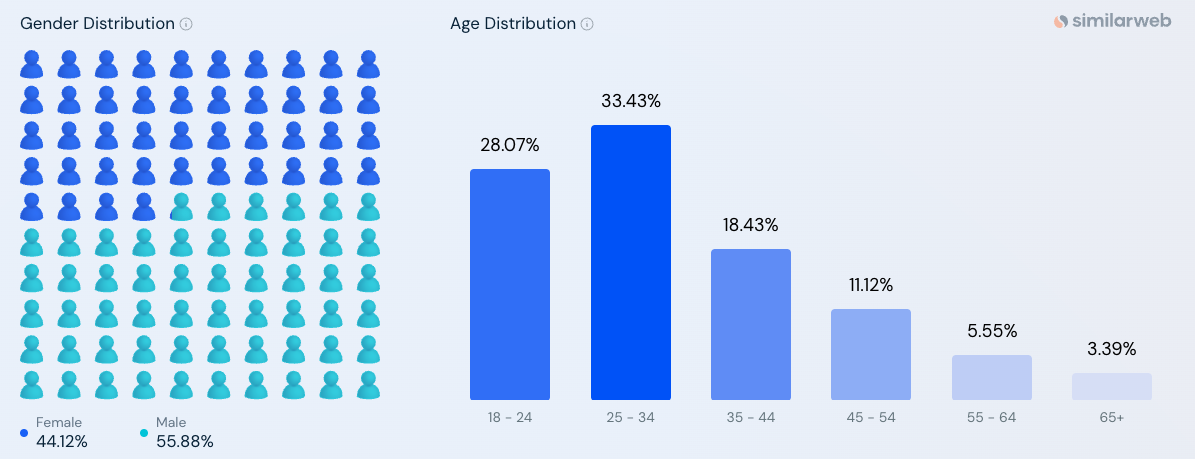
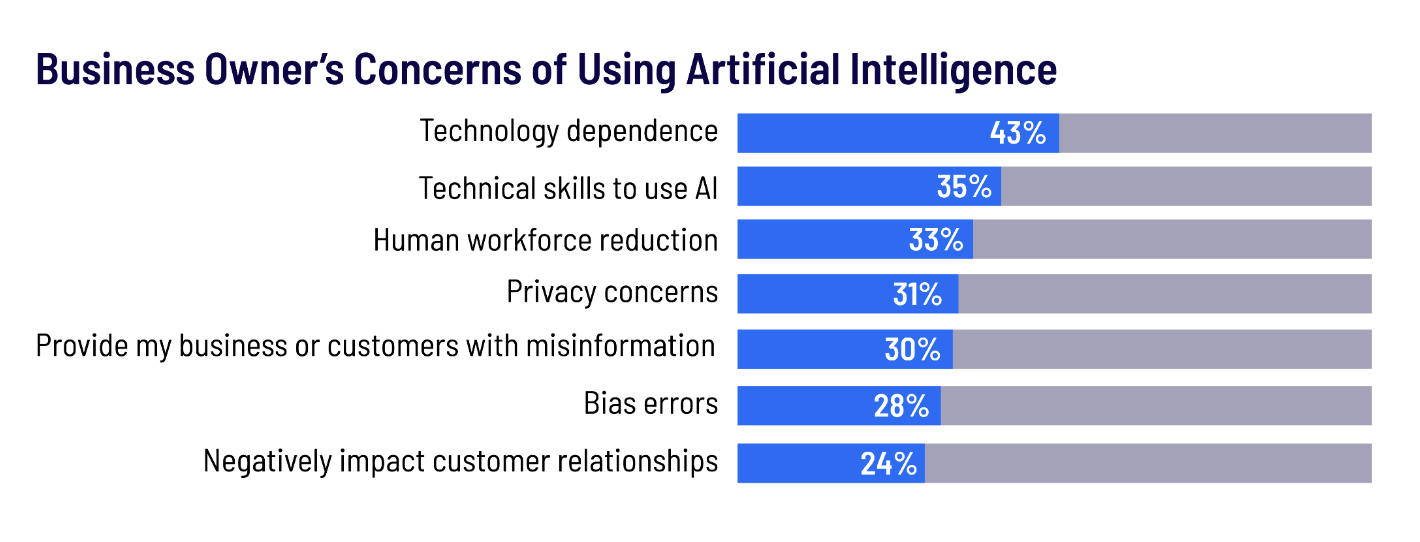
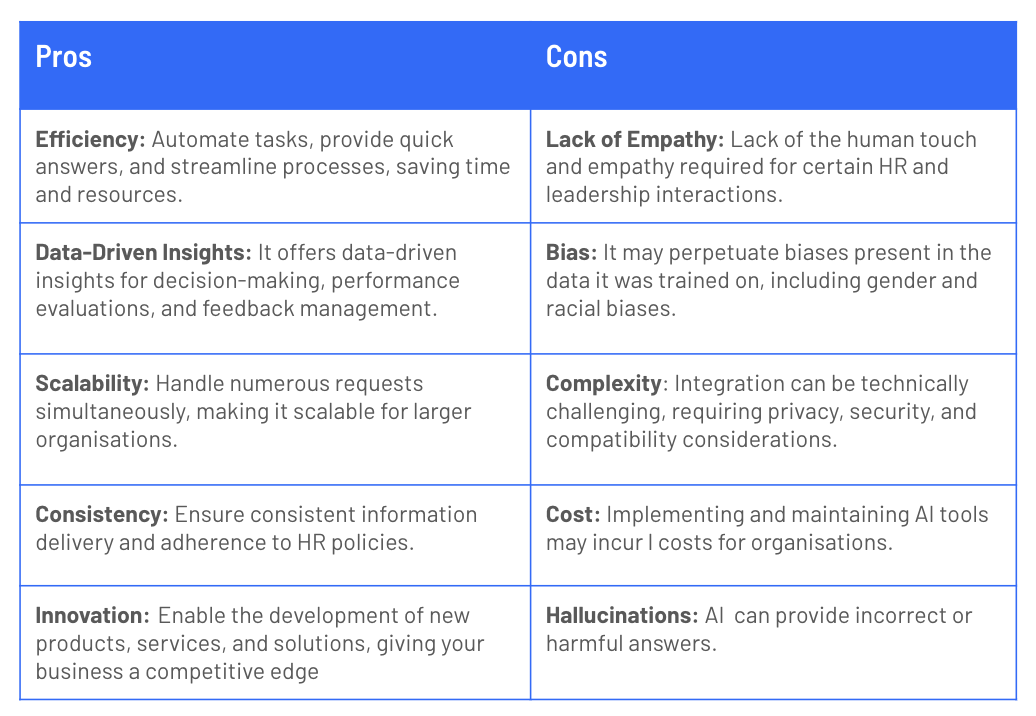
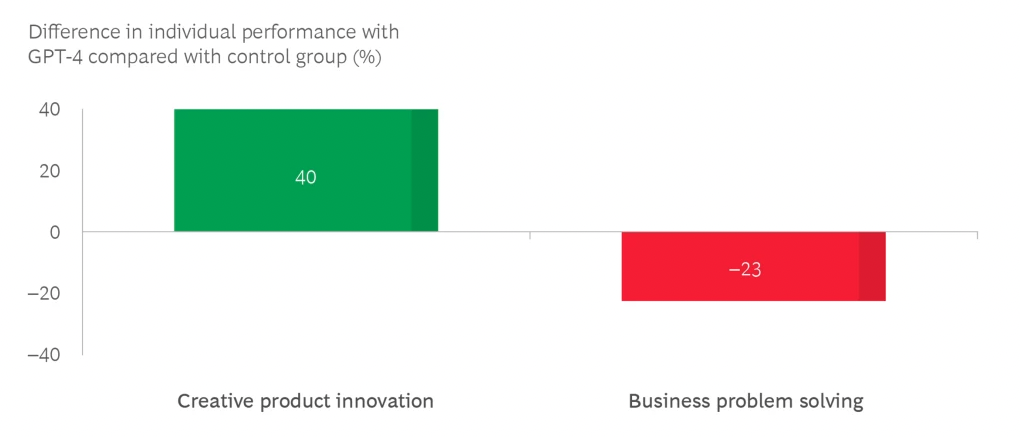
.png?width=2136&height=640&name=AIB%20PB%20(1).png)


